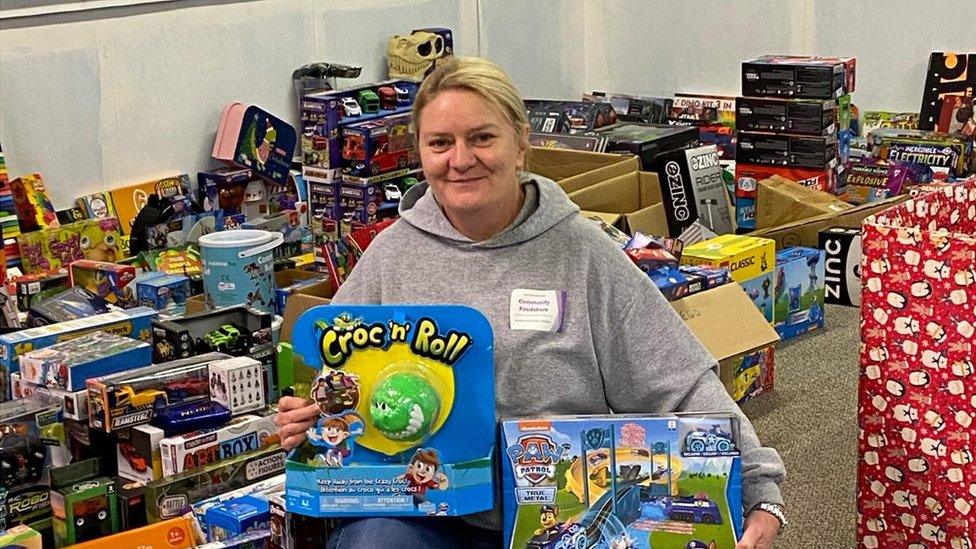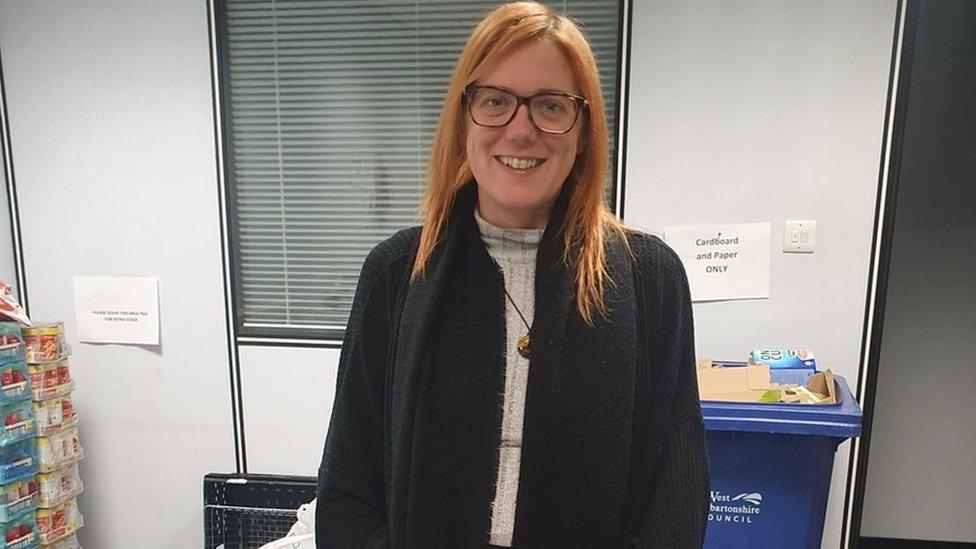Cost of living: 'More and more it's people on wages seeking support'
- Published

Clair Coyle said food banks were struggling to meet demand
Food banks in Scotland are seeing more working families asking for help than ever before.
West Dunbartonshire Community Foodshare has seen a 70% increase in working families needing support and a 30% increase in demand generally.
However, donations are struggling to keep up.
"We're really busy - the number of people seeking support has increased significantly over the last few months," said manager Clair Coyle.
"We've seen the highest increase in working families, such as families who just miss the threshold for support and can't benefit from free school meals, uniform support and cost of living support.
"Typically folk feel it's usually people on benefits seeking support, but more and more it's people on wages seeking support."
She added: "We're hearing from working families that the only support available to them is charitable support as there's not much government support for them."
She said most working families were seeking help with fuel payments as well as emergency food aid.
The charity's fuel poverty project helps those on gas and electric prepayment metres at risk of disconnection.
Staff can apply to different organisations, such as fuel providers and other charities, and households can receive up to three fuel vouchers over six months valued at either £28 or £49.
At another West Dunbartonshire food charity, Food for Thought, operations manager Lorraine Little has found their donations also taking a hit.

Lorraine Little said more working families needed support
"It's definitely changed this year," she said.
"The demand for the food bank is unbelievable and also the fall in donations is really noticeable.
"It just shows that this is affecting everybody, even people with two incomes who would usually donate.
"Our donations are still good but there has definitely been a fall, especially this last month."
Britain's biggest food bank network, the Trussell Trust, found that 320,000 people in the UK used a food bank for the first time in the last six months and that number is likely to rise.
"I don't think there's anything people can do differently just now," Ms Little said. "Especially with some folk being sanctioned at job centres, they can have no money for up to four weeks.
"It seems like anyone going for a job now is fighting with so many other people, or they can't afford childcare and can't go to work, it just becomes a vicious cycle."
The Trussell Trust provided 34% more food parcels in just six months between April and the end of September 2022.
Food banks across Scotland experienced their busiest six months on record for that period.
Emma Revie, chief executive of the Trussell Trust, said thousands of people were already having to go without the essentials.
She added: "With food banks already pushed to breaking point, the UK government must urgently consider how to bridge the gap between the November cost of living payment and the uprating of benefit in April."
The UK government has provided two payments totalling £650 that have been made to more than eight million low-income households.
The first instalment of £326 was paid out between 14 and 31 July and the second instalment of £324 should have reached those eligible by the end of December.
Some groups will be eligible for further payments of up to £900 from April 2023.